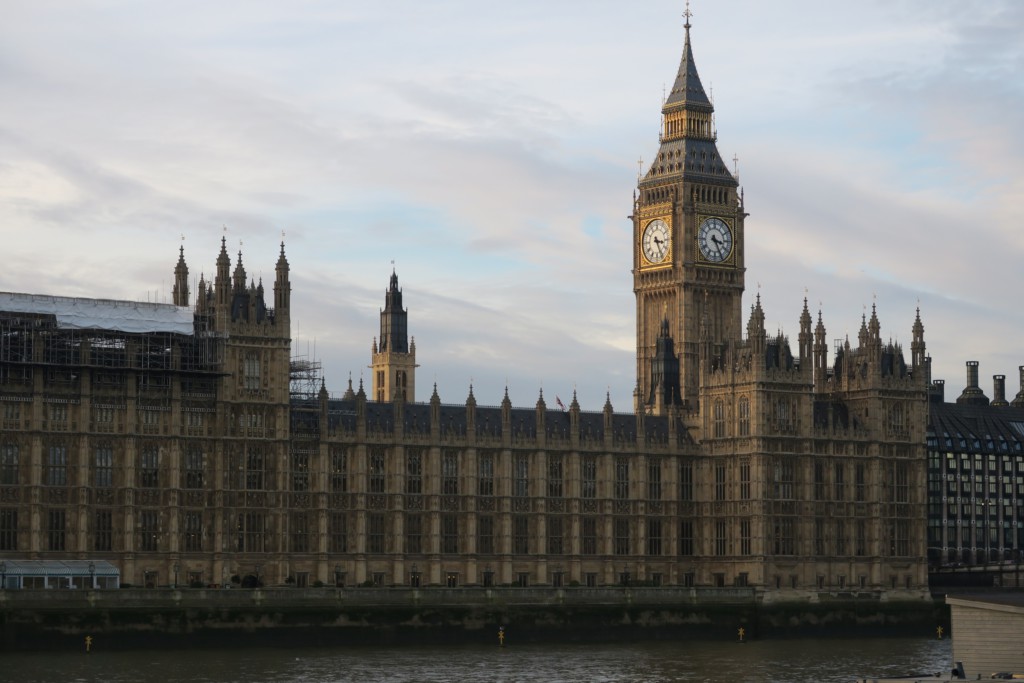Декларация о торговле и тарифах
Манифест о принципах американского процветанияПризыв отказаться от пагубной тарифной политики18 апреля 2025 г.Процветание Америки сегодня, как и всегда, основано на принципах предпринимательства и добровольного экономического обмена. На протяжении 250 лет Соединенные Штаты Америки демонстрировали миру, что народ, которому предоставлена свобода инноваций и производства для себя и для всех, кто с ним торгует, будет наслаждаться растущим изобилием, более высокими стандартами жизни и большей безопасностью как в экономической, так и в военной сферах.С момента получения власти в 2025 году администрация Трампа односторонними указами исполнительной власти установила высокие протекционистские тарифы. Эти меры внесли неопределенность и хаос в мировую экономику из-за чудовищно меняющихся ставок и постоянно изменяемых правил. В совокупности эти меры представляют собой рекордное повышение налогов на торговые операции почти за столетие. Сторонники тарифов представляют эти меры как акт «экономического освобождения». Однако вместо этого такие тарифы извращают принципы свободы, возвестившие о наступлении эпохи человеческой свободы и процветания под руководством Америки.Отцы-основатели при создании США отвергли раздачу политических льгот и навязывание меркантилизма. В своих инструкциях делегатам Вирджинии на Континентальном конгрессе в 1774 году Томас Джефферсон призвал их отстаивать право американских колонистов на «осуществление свободной торговли со всеми частями света». Два года спустя в Декларации независимости были перечислены причины, побудившие эти колонии к революции, среди которых был протест против короля Георга III «за препятствие нашей торговли со всеми частями света».Сегодня мы сталкиваемся с действиями исполнительной власти, основанными на ошибочных утверждениях, вытекающих из:• Ошибочного истолкования истории нашей страны• Ошибочного понимания нынешнего экономического положения нашей страны• Ошибочной диагностики природы экономических недугов нашей страны• Отказа от давно и широко принятых базовых принципов экономической политикиМы, нижеподписавшиеся, считаем необходимым предложить следующие коррективы относительно основ американского процветания, строящегося на принципах «мир, торговля и честная дружба со всеми странами».• Факты экономической жизни показывают, что свобода торговли ассоциируется с более высокими доходами на душу населения, более быстрыми темпами экономического роста и повышением экономической эффективности.• Американская экономика является глобальной экономикой, использующей почти две трети своего импорта в качестве ресурсов для внутреннего производства.• Тарифы, введенные нынешней администрацией, мотивированы ошибочным пониманием экономических условий, в которых находятся простые американцы. Именно американские рабочие понесут основную тяжесть этой ошибочной политики в виде роста цен и риска искусственно запущенной рецессии.• Вопреки широко распространенным опасениям, торговый дефицит США не является свидетельством экономического отставания США или несправедливой торговой практики за рубежом. Тем более этот «дефицит» не наносит ущерба экономике США. Верно как раз обратное. Торговый дефицит США отражает высокую уверенность мировых инвесторов в экономике США. Их инвестиции, в свою очередь, еще больше укрепляют производительную экономику США — и спрос на американский доллар.• «Взаимные» тарифные ставки, какими угрожают администрация, и какие она навязывает другим странам, были рассчитаны с использованием ошибочной и импровизированной формулы, не имеющей под собой никакой основы в экономической реальности. Расчеты не соответствуют установленным методам расчета взаимных тарифов, как это сформулировано в главе 301 Закона о торговле 1974 года.• Протекционистская политика администрации повторяет катастрофические ошибки тарифа Смута-Хоули 1930 года, против которого тогда выступили 1028 экономистов. Эти ученые понимали, что протекционистские тарифы спровоцируют ответную торговую войну, тем самым усугубив ту самую Великую депрессию, с которой они были призваны справиться. Ставки, напоминающие тарифы Смута-Хоули, сегодня навязываются значительно более интегрированной мировой экономике, с риском получить столь же разрушительный результат для простых американцев.• «Полномочия устанавливать и собирать налоги, пошлины, сборы и акцизы» конституционно закреплены за Конгрессом как прямым и явным представителем народа. Тарифы, установленные 2 апреля 2025 г., были введены без согласия этого органа и без применения какого-либо внятного руководящего принципа. Вместо этого рациональное суждение и законная власть, зарезервированные за Конгрессом, а значит и за народом, были заменены односторонними исполнительными указами, оправдываемыми импровизированными требованиями чрезвычайного положения в соответствии с документом, который даже не предполагал введения тарифов. Такое использование власти является неконституционным.Окно для отмены этой непоследовательной и разрушительной политики закрывается. Однако мы по-прежн

Манифест о принципах американского процветания
Призыв отказаться от пагубной тарифной политики
18 апреля 2025 г.
Процветание Америки сегодня, как и всегда, основано на принципах предпринимательства и добровольного экономического обмена. На протяжении 250 лет Соединенные Штаты Америки демонстрировали миру, что народ, которому предоставлена свобода инноваций и производства для себя и для всех, кто с ним торгует, будет наслаждаться растущим изобилием, более высокими стандартами жизни и большей безопасностью как в экономической, так и в военной сферах.
С момента получения власти в 2025 году администрация Трампа односторонними указами исполнительной власти установила высокие протекционистские тарифы. Эти меры внесли неопределенность и хаос в мировую экономику из-за чудовищно меняющихся ставок и постоянно изменяемых правил. В совокупности эти меры представляют собой рекордное повышение налогов на торговые операции почти за столетие. Сторонники тарифов представляют эти меры как акт «экономического освобождения». Однако вместо этого такие тарифы извращают принципы свободы, возвестившие о наступлении эпохи человеческой свободы и процветания под руководством Америки.
Отцы-основатели при создании США отвергли раздачу политических льгот и навязывание меркантилизма. В своих инструкциях делегатам Вирджинии на Континентальном конгрессе в 1774 году Томас Джефферсон призвал их отстаивать право американских колонистов на «осуществление свободной торговли со всеми частями света». Два года спустя в Декларации независимости были перечислены причины, побудившие эти колонии к революции, среди которых был протест против короля Георга III «за препятствие нашей торговли со всеми частями света».
Сегодня мы сталкиваемся с действиями исполнительной власти, основанными на ошибочных утверждениях, вытекающих из:
• Ошибочного истолкования истории нашей страны
• Ошибочного понимания нынешнего экономического положения нашей страны
• Ошибочной диагностики природы экономических недугов нашей страны
• Отказа от давно и широко принятых базовых принципов экономической политики
Мы, нижеподписавшиеся, считаем необходимым предложить следующие коррективы относительно основ американского процветания, строящегося на принципах «мир, торговля и честная дружба со всеми странами».
• Факты экономической жизни показывают, что свобода торговли ассоциируется с более высокими доходами на душу населения, более быстрыми темпами экономического роста и повышением экономической эффективности.
• Американская экономика является глобальной экономикой, использующей почти две трети своего импорта в качестве ресурсов для внутреннего производства.
• Тарифы, введенные нынешней администрацией, мотивированы ошибочным пониманием экономических условий, в которых находятся простые американцы. Именно американские рабочие понесут основную тяжесть этой ошибочной политики в виде роста цен и риска искусственно запущенной рецессии.
• Вопреки широко распространенным опасениям, торговый дефицит США не является свидетельством экономического отставания США или несправедливой торговой практики за рубежом. Тем более этот «дефицит» не наносит ущерба экономике США. Верно как раз обратное. Торговый дефицит США отражает высокую уверенность мировых инвесторов в экономике США. Их инвестиции, в свою очередь, еще больше укрепляют производительную экономику США — и спрос на американский доллар.
• «Взаимные» тарифные ставки, какими угрожают администрация, и какие она навязывает другим странам, были рассчитаны с использованием ошибочной и импровизированной формулы, не имеющей под собой никакой основы в экономической реальности. Расчеты не соответствуют установленным методам расчета взаимных тарифов, как это сформулировано в главе 301 Закона о торговле 1974 года.
• Протекционистская политика администрации повторяет катастрофические ошибки тарифа Смута-Хоули 1930 года, против которого тогда выступили 1028 экономистов. Эти ученые понимали, что протекционистские тарифы спровоцируют ответную торговую войну, тем самым усугубив ту самую Великую депрессию, с которой они были призваны справиться. Ставки, напоминающие тарифы Смута-Хоули, сегодня навязываются значительно более интегрированной мировой экономике, с риском получить столь же разрушительный результат для простых американцев.
• «Полномочия устанавливать и собирать налоги, пошлины, сборы и акцизы» конституционно закреплены за Конгрессом как прямым и явным представителем народа. Тарифы, установленные 2 апреля 2025 г., были введены без согласия этого органа и без применения какого-либо внятного руководящего принципа. Вместо этого рациональное суждение и законная власть, зарезервированные за Конгрессом, а значит и за народом, были заменены односторонними исполнительными указами, оправдываемыми импровизированными требованиями чрезвычайного положения в соответствии с документом, который даже не предполагал введения тарифов. Такое использование власти является неконституционным.
Окно для отмены этой непоследовательной и разрушительной политики закрывается. Однако мы по-прежнему надеемся, что здравые экономические принципы, эмпирические данные и предостережения истории возобладают над протекционистской мифологией настоящего момента.
Будучи экономистами и учеными в смежных областях, мы призываем американскую общественность и, конечно же, весь мир присоединиться к нам, чтобы отвергнуть этот ошибочный путь нанесения вреда с помощью тарифов. Вместо этого мы подтверждаем приверженность основополагающим принципам, сформулированным Джорджем Вашингтоном в его Прощальном обращении:
«Гармония, либеральные отношения со всеми странами рекомендуются политикой, гуманностью и интересами. Но даже наша торговая политика должна быть равной и беспристрастной; нацеленной не на поиск и предоставление исключительных льгот или преференций; а на сверку с естественным ходом вещей; на распространение и диверсификацию потоков торговли мягкими средствами, без какого-либо принуждения».
https://anti-tariff.org/
Trade and Tariffs Declaration
A Statement on the Principles of American Prosperity
A Call to Reject Harmful Tariff Policies
April 18, 2025
America’s prosperity is today, as it has always been, rooted in principles of entrepreneurship and voluntary economic exchange. For 250 years, the United States of America has demonstrated to the world that a people left free to innovate and produce for themselves, and for all who trade with them, will enjoy increasing abundance, higher standards of living, and greater security both economically and militarily.
Since taking office in 2025, the Trump Administration has adopted steep protective tariffs by unilateral executive decrees. These measures have injected uncertainty and chaos into the global economy through wildly fluctuating rates and ever-changing orders. Cumulatively, they impose the largest tax increase on trade in almost a century. The proponents of tariffs portray these measures as acts of ‘economic liberation.’ Instead, tariffs invert the principles of liberty that ushered in an American-led age of human freedom and prosperity.
America’s Founding Fathers rejected the bestowing of political favors and the imposition of Mercantilism. In his instructions to Virginia delegates to the Continental Congress in 1774, Thomas Jefferson urged them to stand for the American colonists’ right to “the exercise of a free trade with all parts of the world.” Two years later, the Declaration of Independence enumerated the causes that impelled those colonies to revolution, among them a protest against King George III “For cutting off our trade with all parts of the world.”
Today, we face a series of executive actions based upon assertions that:
- Misconstrue our nation’s history
- Misunderstand our nation’s current economic condition
- Misdiagnose the nature of our nation’s economic ills
- Repudiate long-standing and widely accepted economic first principles
We, the undersigned, find it necessary to offer the following corrective observations on the foundations of American prosperity, which is built upon principles of “peace, commerce, and honest friendship with all nations.”
- Overwhelming economic evidence shows that freedom to trade is associated with higher per-capita incomes, faster rates of economic growth, and enhanced economic efficiency.
- The American economy is a global economy that uses nearly two thirds of its imports as inputs for domestic production.
- The current administration’s tariffs are motivated by a mistaken understanding of the economic conditions faced by ordinary Americans. We anticipate that American workers will incur the brunt of these misguided policies in the form of increased prices and the risk of a self-inflicted recession.
- Contrary to widespread fears, U.S. trade deficits are not evidence of U.S. economic decline or of unfair trade practices abroad. Nor do these “deficits” inflict damage on the U.S. economy. Quite the opposite is true. U.S. trade deficits reflect global investors’ high confidence in the U.S. economy. And these investments, in turn, further strengthen the productive economy — and demand for the U.S. dollar.
- The “reciprocal” tariff rates being threatened and imposed by the United States upon other countries are calculated using an erroneous and improvised formula with no basis in economic reality. The calculations deviate from established methods for calculating reciprocal tariffs, as specified in Section 301 of the Trade Act of 1974.
- The administration’s protectionist policies repeat the catastrophic errors of the Smoot-Hawley Tariff of 1930, which was opposed by 1,028 economists. These scholars understood that protectionist tariffs would provoke a retaliatory trade war, thereby exacerbating the very same Great Depression that it was intended to solve. Rates resembling Smoot-Hawley are being imposed upon a significantly more integrated global economy, risking a similarly devastating outcome for ordinary Americans.
- The “Power To lay and collect Taxes, Duties, Imposts and Excises” was constitutionally reserved to Congress as the direct and explicit representatives of the people. The April 2 tariffs have been imposed without that body’s consent, and without any intelligible guiding principle. Instead the judgment and rightful power reserved to Congress, and so to the people, has been replaced by unilateral executive decrees, justified by improvised claims of emergency under a statute that does not even contemplate authorizing tariffs. This seizure of power is unconstitutional.
The window to reverse these incoherent and damaging policies is closing. We remain hopeful, however, that sound economic principles, empirical evidence, and the warnings of history will prevail over the protectionist mythologies of the moment.
As economists and scholars in related fields, we invite the American public, and indeed the world, to join us in rejecting this misguided path of tariff-induced harm. Instead, we reiterate a commitment to the foundational principles articulated by George Washington in his Farewell Address:
“Harmony, liberal intercourse with all nations, are recommended by policy, humanity, and interest. But even our commercial policy should hold an equal and impartial hand; neither seeking nor granting exclusive favors or preferences; consulting the natural course of things; diffusing and diversifying by gentle means the streams of commerce, but forcing nothing.”
https://anti-tariff.org/
Sign the Declaration
On April 18, 2025, this statement was issued by:
- Vernon Smith
- James Heckman
- Phil Gramm
- Richard Vedder
- Robert Higgs
- Benjamin Powell
- William F. Shughart II
- David R. Henderson
- Randall G. Holcombe
- Phillip W. Magness
- Donald J. Boudreaux
- Mario J. Rizzo
- Peter J. Boettke
- Deirdre N. McCloskey
- Lawrence White
- N. Gregory Mankiw
- Kenneth Elzinga
- Robert Whaples
- Michael Munger
- Claudia Williamson Kramer
- Robert Lawson
- Sam Peltzman
- Lee James Alston
- Steve H. Hanke
- Robert F. Engle
Sign the Declaration
On April 27, 2025, this statement was co-signed by 1694 signatures.
По состоянию на 27 апреля эта декларация собрала 1694 подписей.
https://anti-tariff.org/






















































